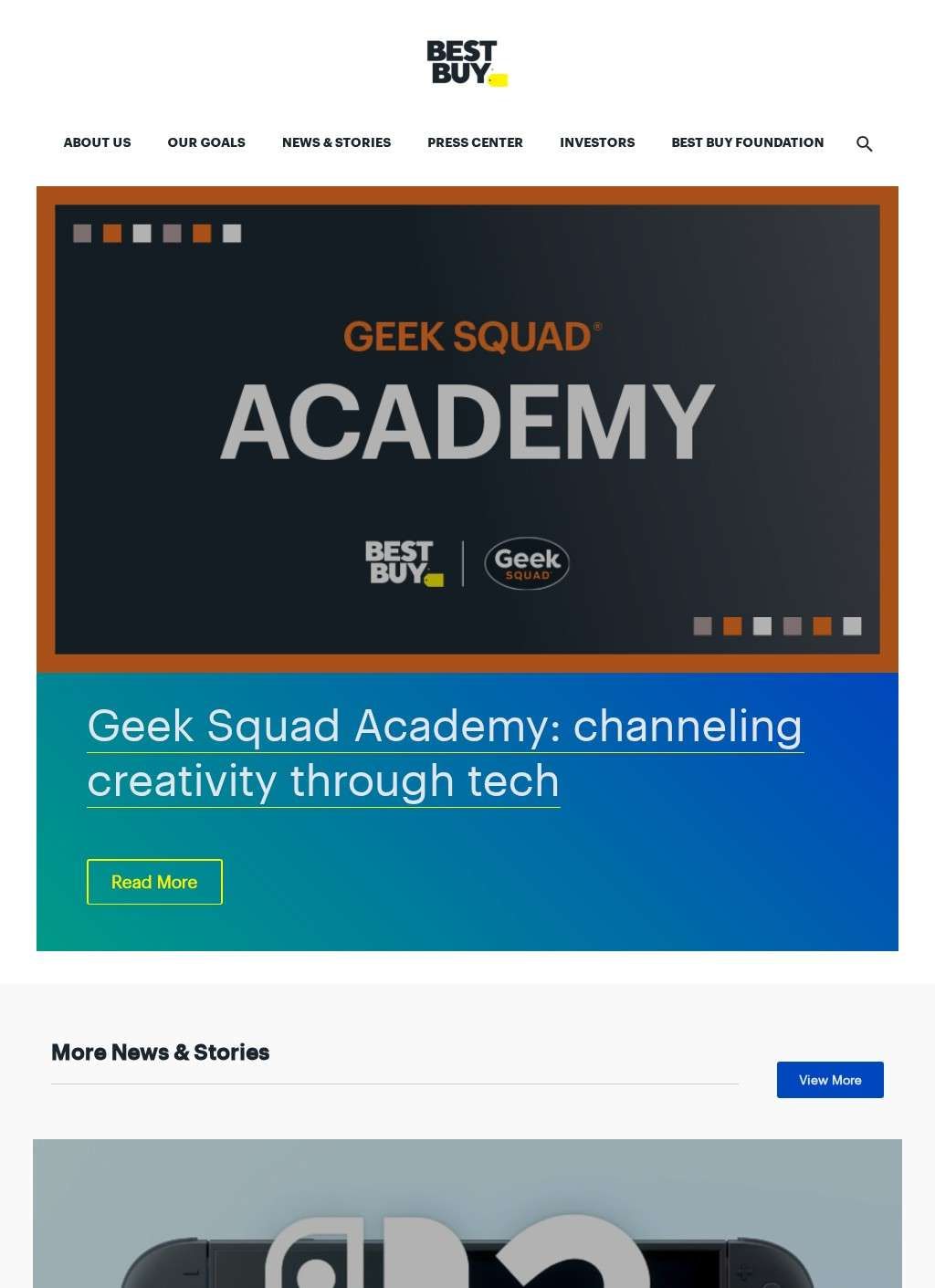Best Buy Co., Inc. stands as North America's largest specialty retailer in the consumer electronics industry, operating a comprehensive ecosystem that spans retail stores, online platforms, and specialized business services. Founded in 1966 as Sound of Music, an audio specialty store in St. Paul, Minnesota, the company has evolved into a technology retail giant with over 1,000 stores and annual revenues exceeding $45 billion. Best Buy's transformation from a traditional electronics retailer to a comprehensive technology solutions provider reflects broader changes in consumer behavior and the increasing integration of technology into personal and professional life.
The company's retail footprint encompasses multiple formats designed to serve different customer segments and shopping preferences. Traditional Best Buy stores provide comprehensive showrooms where customers can experience products before purchasing, while smaller format stores focus on mobile phones and accessories in high-traffic locations. Best Buy's e-commerce platform complements physical stores by offering extended product selection, detailed specifications, customer reviews, and flexible fulfillment options including home delivery, store pickup, and same-day delivery in many markets. This omnichannel approach enables customers to research, purchase, and receive support through their preferred channels while maintaining consistent experiences across all touchpoints.
Product portfolio diversity distinguishes Best Buy from more specialized retailers, with offerings spanning consumer electronics, appliances, mobile phones, gaming systems, computing products, smart home devices, and entertainment content. The company's merchandising strategy emphasizes demonstration and experience, allowing customers to interact with products in realistic environments that showcase capabilities and benefits. Best Buy's product curation process involves selecting items that meet quality standards while providing clear differentiation across price points and feature sets, helping customers navigate complex technology decisions with confidence.
Best Buy's business-to-business operations represent a significant and growing segment that serves small and medium enterprises, educational institutions, and healthcare organizations. Best Buy Business provides volume purchasing, dedicated account management, and specialized services tailored to organizational needs that differ significantly from consumer requirements. This includes procurement support, asset management, device configuration, and deployment services that help businesses implement technology solutions efficiently. The education segment addresses unique requirements such as student device programs, classroom technology integration, and educational software licensing.
Service capabilities have become increasingly important as technology products become more complex and consumers seek assistance with implementation, optimization, and troubleshooting. Geek Squad, Best Buy's technical services division, provides in-home and in-store support for device setup, software installation, network configuration, and repair services. This comprehensive service portfolio extends product value by ensuring customers can fully utilize their technology investments while providing ongoing revenue streams that complement product sales. Geek Squad's capabilities have expanded to include smart home installation, cybersecurity services, and business technology support.
Best Buy's approach to emerging technologies positions the company as an early adopter showcase where consumers can experience innovations before they achieve mainstream adoption. This includes virtual reality systems, artificial intelligence applications, electric vehicle charging solutions, and smart home ecosystems that integrate multiple devices and platforms. The company's innovation labs and prototype programs enable it to evaluate and introduce new product categories while educating consumers about capabilities and benefits. This early market development role creates competitive advantages by establishing Best Buy as a destination for technology enthusiasts and early adopters.
Vendor relationships represent a critical aspect of Best Buy's business model, with partnerships that extend beyond simple product distribution to include collaborative marketing, exclusive product launches, and joint development initiatives. The company's market position enables it to influence product development by providing manufacturers with consumer insights and market feedback that inform design decisions and feature priorities. Best Buy's vendor summit events and regular business reviews ensure alignment between manufacturer objectives and retail execution, optimizing results for all stakeholders while delivering value to customers.
Digital transformation initiatives have reshaped Best Buy's operations and customer experiences, incorporating advanced analytics, artificial intelligence, and automation throughout the organization. The company's mobile applications provide personalized recommendations, inventory visibility, and seamless integration with physical stores for services such as product pickup and technical support scheduling. Best Buy's supply chain optimization uses predictive analytics to improve inventory management, reduce stockouts, and minimize excess inventory while ensuring popular products remain available across all channels.
Sustainability and environmental responsibility represent growing priorities as Best Buy addresses consumer concerns about electronic waste and environmental impact. The company's recycling programs accept products from any manufacturer, regardless of where they were purchased, providing convenient disposal options for consumers while recovering valuable materials for reuse. Best Buy's energy efficiency initiatives include promoting ENERGY STAR certified products and providing information that helps consumers make environmentally conscious purchasing decisions. The company's corporate sustainability goals include carbon neutrality and waste reduction targets that demonstrate long-term environmental commitment.
Membership and loyalty programs enhance customer relationships while providing valuable data insights that inform merchandising and marketing decisions. Best Buy's My Best Buy program offers exclusive pricing, early access to sales events, and personalized recommendations based on purchase history and browsing behavior. The program's tiered structure rewards frequent customers with enhanced benefits while encouraging increased engagement and spending across all channels. These customer relationship investments create switching costs that improve retention while generating insights that enable more effective inventory planning and promotional strategies.
Looking ahead, Best Buy continues to evolve its business model to address changing consumer preferences and technology trends. The company's investments in health technology, electric vehicle infrastructure, and subscription services reflect recognition that traditional electronics retail must expand to encompass broader lifestyle and business needs. Best Buy's ability to adapt its physical footprint, service capabilities, and product portfolio while maintaining its core strengths in customer experience and technical expertise positions it to remain relevant as technology continues to transform how people live and work.
